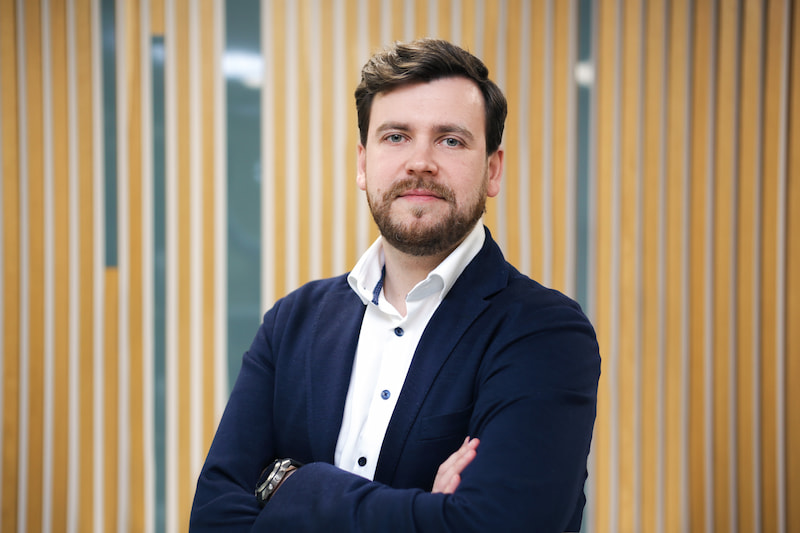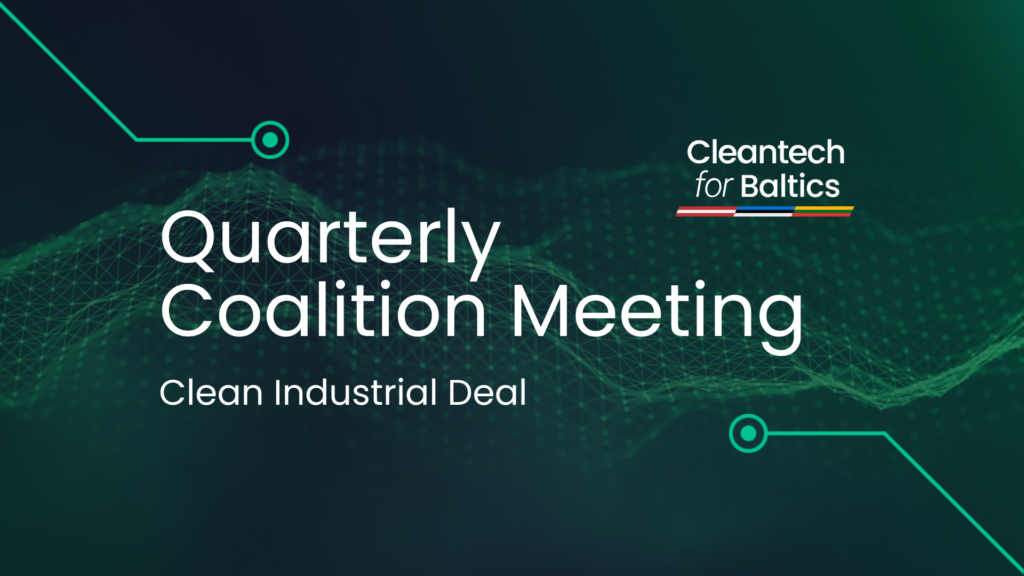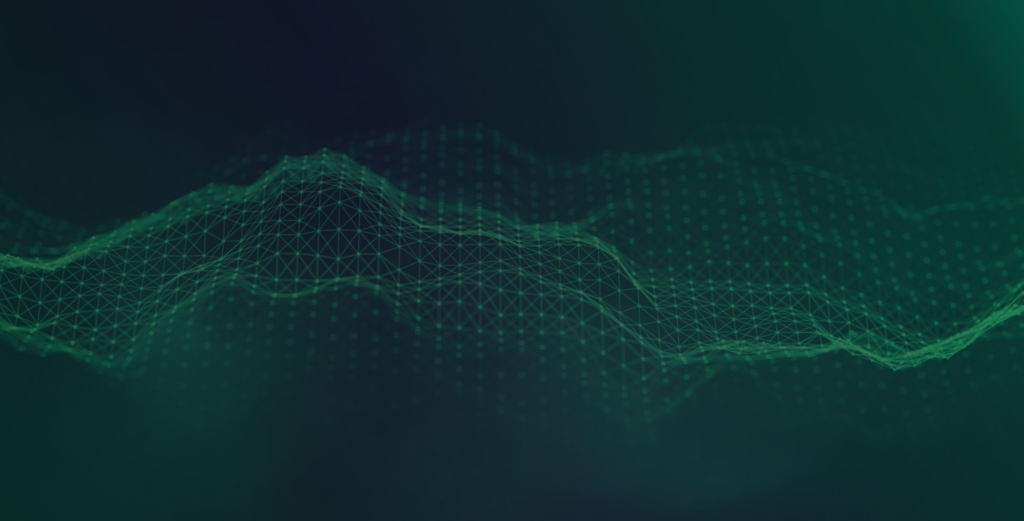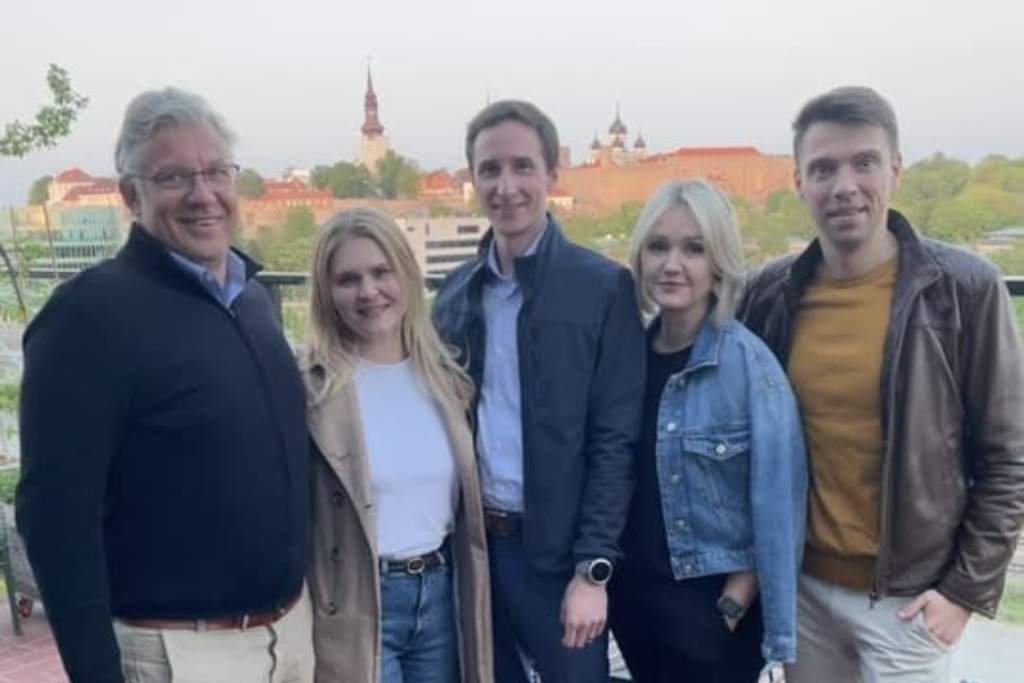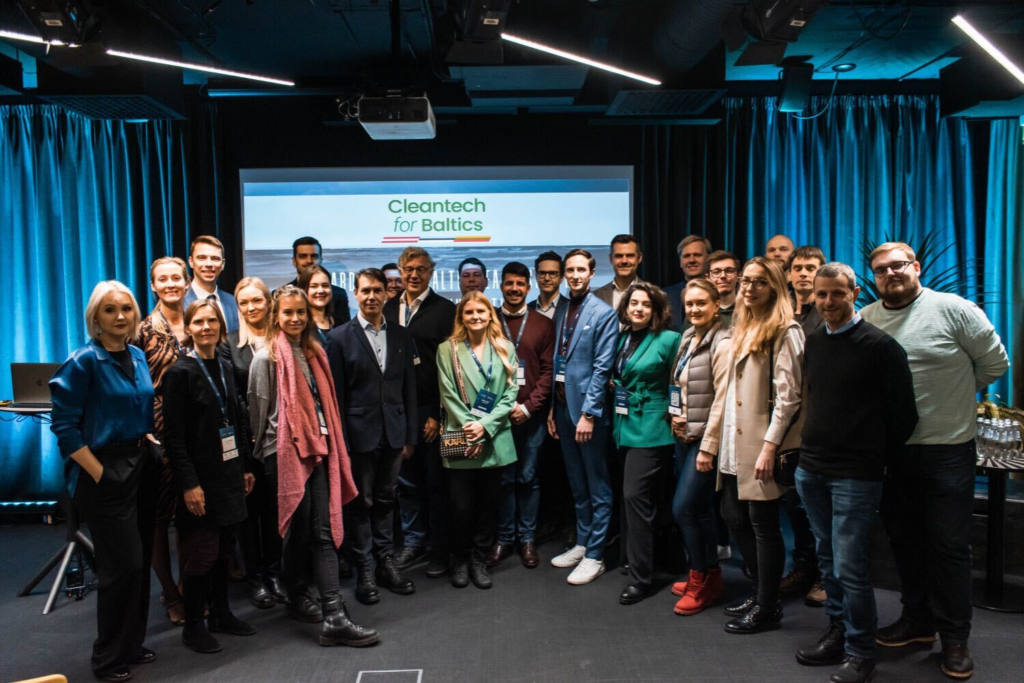As Europe advances toward a sustainable energy future, companies like SoliTek play a vital role in shaping the cleantech landscape through cutting-edge innovation. Founded in 2009, SoliTek has transformed from a solar cell manufacturer into a comprehensive sustainable energy solutions provider. In this exclusive interview, Julius Sakalauskas, CEO of SoliTek, discusses the company’s latest technological innovations, the regulatory challenges of scaling across diverse markets, and the essential role of solar energy in achieving net-zero goals.
To stay ahead of the curve, SoliTek has focused heavily on pioneering energy storage solutions that enhance efficiency and environmental sustainability. J. Sakalauskas shares some of the innovative technologies SoliTek is currently developing.
“At SoliTek, we are pushing the boundaries of energy storage with our SoliTek Nova battery system, powered by LFP (Lithium Iron Phosphate) technology, which offers superior safety, longevity, and environmental benefits. What truly sets us apart, however, is our Smart AI-controlled Home Energy Management System (EMS), designed to optimize energy usage based on household consumption patterns and solar power generation. Our EMS connects SoliTek Nova to wholesale electricity markets across Europe, such as NordPool, and uses AI to analyze dynamic energy tariffs. By tracking these prices, the system intelligently charges the home battery when electricity is cheapest and discharges it during peak cost periods. This ensures optimal battery usage, reducing electricity bills year-round.
Additionally, we are exploring cutting-edge energy storage technologies like sodium-ion and graphene batteries. Although these are still in the early stages and far from commercialization, we plan to begin testing later this year, underscoring our commitment to pioneering the future of sustainable energy.”
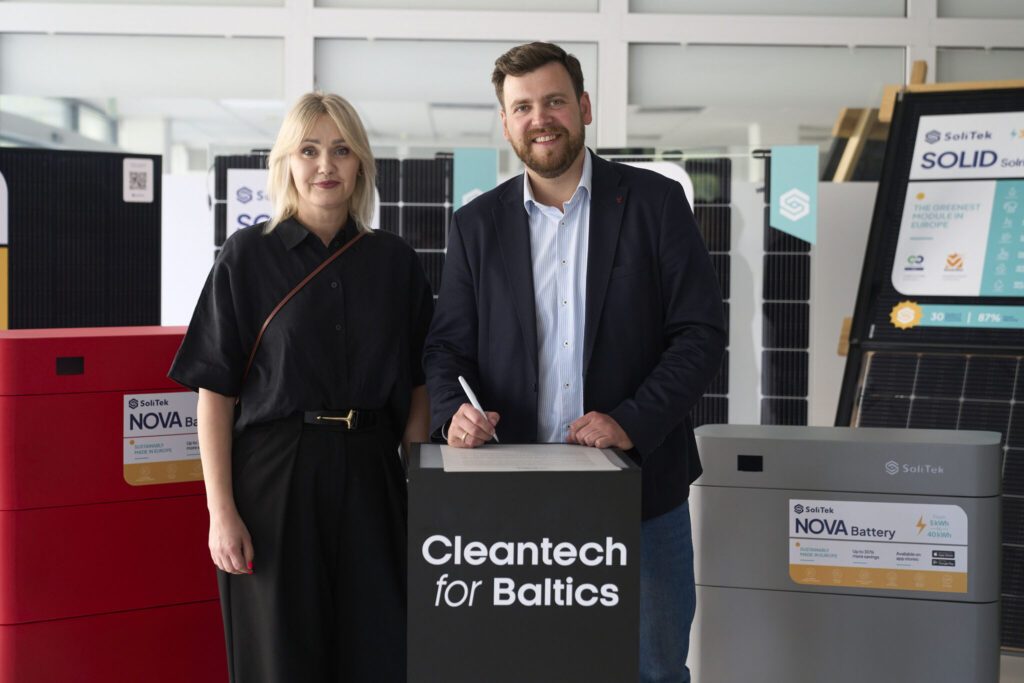
SoliTek integrates sustainability into every stage of its product lifecycle, from selecting eco-friendly components to advancing recycling practices. The company prioritizes environmentally conscious design and disposal methods to ensure minimal impact throughout a product’s lifespan.
“The first step includes choosing components without materials that could harm humans or the environment. We achieved it through cradle-to-cradle certified gold level certification. From the moment our product is sold, the EU extended-producer-responsibility laws dictate that disposal/recycling should be done by the entity that imports the product in the market. In our industry, it is the distributors and installers who should do it. From our research, we see that it is not working properly; thus, we have an agreement with a German recycler to recycle our PV modules. Additionally, we have launched a product circularity datasheet that our customers can use to prepare the PV module for reuse or recycling. Instead of making it a hurdle to take care of waste, we provide our customers with a new revenue option: selling second-hand PV in online marketplaces,” – J. Sakalauskas expains.
Expanding into diverse European markets brings unique challenges, particularly with varying regulations across countries. SoliTek addresses these regulatory hurdles by adapting its products and processes to meet the specific requirements of each market, ensuring compliance while maintaining high performance and sustainability standards.
“Challenges vary significantly depending on the specific regulations under consideration. Broadly speaking, three key areas can be identified: sustainability, the mechanical performance of the product, and regulatory compliance when using solar modules as construction elements. Addressing mechanical performance standards proved to be relatively easy to match, particularly since Scandinavia has been one of our primary markets from the outset. This necessitated the development of a product that is exceptionally robust and resistant to external conditions, such as heavy snow loads, severe hailstorms, and more.
However, navigating regulations in the field of sustainability and the use of solar modules in construction is more complex. The main difficulty arises from the lack of harmonization in requirements across different countries. To streamline our approach, we have designed our product to meet European regulatory standards in these two areas. Nevertheless, additional certifications and approvals are often required, not only when entering new markets but also when targeting new niches within markets where we are already established. Despite the product already being widely recognized and validated by third-party institutions globally, the absence of unified regulations among countries results in more time-consuming and rigorous certification and verification processes, which usually just validate something that was already verified previously by different laboratories or institutes” – says CEO of Solitek J. Sakalauskas.
The Baltic region fosters a supportive environment for cleantech innovation. The area offers distinct advantages facilitating SoliTek’s growth, including a strong focus on sustainability initiatives, a skilled workforce, and strategic geographic positioning within Europe. These factors, combined with access to EU funding, create an ideal ecosystem for advancing sustainable energy solutions.
“The Baltic region strongly focuses on sustainability and green energy initiatives, offering a solid foundation for a company like SoliTek to innovate and expand in sustainable solar energy solutions. Moreover, Lithuania and the Baltic region boast a highly educated and skilled workforce, particularly in engineering, technology, and R&D. This provides SoliTek with access to talented professionals capable of driving technological advancements in solar energy production and storage. The presence of high-quality educational institutions and research centres in Lithuania also fosters a culture of innovation.
Lithuania’s geographical location in Europe offers excellent logistics and market access. Being situated at the crossroads between Northern, Central, and Eastern Europe allows SoliTek to serve Western European markets and emerging Eastern European economies efficiently. This is particularly valuable for B2B operations, where quick, efficient delivery times are crucial. Lastly, as a part of the European Union, Lithuania and the Baltic region benefit from EU funding programs to foster green technologies and innovation. This allows SoliTek to tap into additional financial resources, helping the company remain at the forefront of technological advancements.”
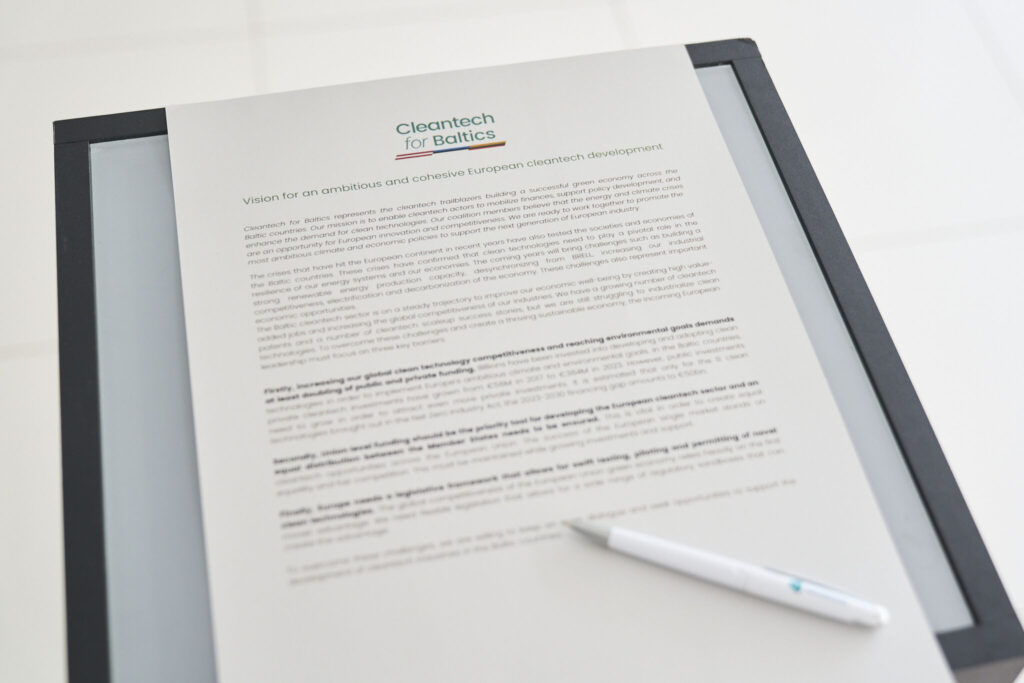
The transition to net zero requires significant contributions from industries across Europe, and SoliTek is actively aligning its initiatives to support this ambitious goal. By focusing on integrated solutions—such as solar facades, roofing, sound barriers, and agrivoltaics—SoliTek maximizes the functionality of its solar installations, generating electricity without occupying valuable land space. These dual-purpose applications not only enhance the efficiency of energy production but also contribute to a more sustainable infrastructure, demonstrating SoliTek’s commitment to playing a pivotal role in Europe’s path to net zero.
“Net zero is an ambitious target, set as a continental example for other regions. There is growing scepticism about the target, as the transition might incur costs for industries that could translate into a less competitive EU industry. We see the PV application as pivotal in the race toward net zero, especially for the final steps. The key areas here are available space and costs for PV installation. We focus on integrated solutions: facades, roofs, sound barriers, and agrivoltaics. We apply our PV modules for double functionality, generating extra value and electricity without occupying the land.”
J. Sakalauskas notes that global politics and subsidy dynamics have made it more difficult for European solar manufacturers to compete on a level playing field. He identifies the core issues that must be addressed for solar and cleantech to thrive.
“The PV industry has become more political in recent years due to extensive subsidies from China, the USA, India, Canada, Turkey, and the EU’s new directives to incentivize made-in-EU PV products. As essential as energy is, it’s now being placed on the same level as basic human needs, such as food. The result is that EU manufacturers find it challenging to survive against PV module dumping from China, which other countries are blocking.
Balancing the protection of our industry with the need to incentivize sustainable and innovative PV manufacturing is the key challenge in the coming years. With the Net-Zero Industry Act, EU member states will have the capability to decide in the next 1.5 years whether they want to incentivize renewable energy products and components made in the EU. Without incentives, the EU risks losing PV manufacturing capability, which has shrunk by half in the past few years.”
Looking ahead, J. Sakalauskas envisions SoliTek evolving beyond its origins to offer a comprehensive ecosystem for energy independence. Here, he shares the broader vision for SoliTek and solar energy’s place in the future.
“SoliTek’s vision extends far beyond being just a solar PV module manufacturer. The company has evolved into a comprehensive energy management ecosystem designed to offer clients a full spectrum of sustainable solutions. By integrating energy generation, storage, and even the ability to sell excess energy, SoliTek provides a one-stop platform for all energy needs.
We’re moving from merely manufacturing solar modules to a construction segment where the solar module is seen not only as an electrical device but also as a construction element. This requires passing even more rigorous and extensive tests than those typically applied to solar modules. By combining these advanced technologies, SoliTek has positioned itself as a leader in providing seamless, European-origin energy ecosystems that empower clients to manage and optimize their energy use sustainably and efficiently. Solar energy plays a central role in this vision by forming the foundation for energy independence and sustainability.”
SoliTek exemplifies the innovation and commitment required to lead Europe’s cleantech sector. Through sustainable practices, high-performance solutions, and strategic positioning in the Baltics, SoliTek is well-positioned to make a lasting impact on Europe’s energy future. As Europe aims for net zero, SoliTek continues to drive advancements in energy storage and smart technology, proving that solar energy is not just an alternative but a core solution for the path ahead.
Cleantech for Baltics is powered by Cleantech Estonia, Sunrise Tech Park and Greentech Cluster Latvia and supported by Breakthrough Energy, a network of investment vehicles, philanthropic initiatives, and policy and advocacy efforts founded by Bill Gates and other private investors in 2015 to accelerate the clean energy transition and help the world reach net zero emissions by 2050.


